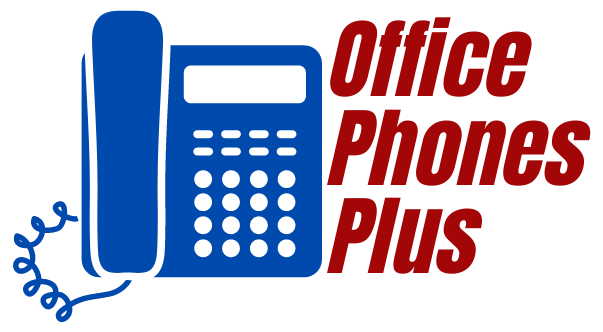Strengthening Your Business in a Down Economy
Partnering with Your CPA for Success
A down economy presents unique challenges for businesses of all sizes. In such times, working closely with a Certified Public Accountant (CPA) can provide valuable insights and guidance to help you navigate financial uncertainties and make strategic decisions. In this blog post, we’ll discuss the role of a CPA, the benefits of partnering with them, and how to improve your communication and collaboration to maximize their expertise. We’ll also explore the concept of creating a financial dashboard to gain a comprehensive view of your expenses on a daily basis.
Understanding the Role of a CPA
A Certified Public Accountant (CPA) is a highly trained financial professional who can provide a wide range of services to businesses and individuals. These may include:
1. Financial Planning and Analysis
CPAs can help you develop a financial plan, analyze your current financial situation, and identify areas for improvement.
2. Tax Planning and Compliance
They can assist with tax planning strategies, ensuring that you comply with tax laws and regulations, and helping you minimize your tax liabilities.
3. Financial Reporting and Audits
CPAs can prepare and review financial statements, ensuring their accuracy and compliance with regulatory requirements. They can also conduct audits to assess the effectiveness of your internal controls and financial processes.
4. Business Consulting
CPAs can provide advice on various aspects of your business, including cash flow management, risk assessment, and strategic planning.
5. Mergers and Acquisitions
They can assist with evaluating potential business deals, conducting due diligence, and guiding you through the transaction process.
Benefits of Partnering with a CPA in a Down Economy
In a challenging economic climate, a CPA can be a valuable ally in helping you navigate financial uncertainties and make informed decisions. Some benefits of working closely with a CPA include:
1. Financial Expertise
CPAs possess in-depth knowledge of financial management, tax laws, and accounting principles, which can help you make better financial decisions and optimize your resources.
2. Strategic Guidance
A CPA can provide strategic advice to help you adapt to changing market conditions, identify new opportunities, and develop a plan for long-term growth.
3. Risk Management
They can help you assess potential risks and implement strategies to mitigate their impact on your business.
4. Compliance Assurance
A CPA can ensure that your financial reporting and tax filings are accurate and compliant with regulatory requirements, helping you avoid costly penalties and maintain a strong reputation.
Improving Communication with Your CPA
To maximize the benefits of partnering with a CPA, it’s essential to maintain open and ongoing communication. Here are some steps you can take to improve your communication with your CPA:
1. Schedule Regular Meetings
Establish a schedule for regular meetings or check-ins with your CPA, whether in-person, by phone, or via video conference. This will help you stay informed about your financial situation and address any concerns or questions promptly.
2. Provide Accurate and Timely Information
Ensure that your CPA has access to accurate and up-to-date financial data, as this will enable them to provide the most relevant and effective advice.
3. Be Transparent and Open
Share your business goals, challenges, and concerns with your CPA, as this will help them understand your needs and tailor their advice accordingly.
4. Seek Their Input
Involve your CPA in strategic decision-making and seek their input on financial matters. This can help you make more informed decisions and tap into their expertise.
Creating a Financial Dashboard for Daily Expense Tracking
A financial dashboard is a powerful tool that provides a comprehensive view of your financial data in a single, easily accessible location. By creating a financial dashboard, you can monitor your expenses daily, enabling you to identify trends, spot potential issues, and make informed decisions about your business finances. Here are some key elements to include in your financial dashboard:
1. Revenue and Expenses
Track your daily, weekly, or monthly revenue and expenses to gain insight into your cash flow and identify any areas of concern or opportunities for cost reduction.
2. Accounts Receivable and Payable
Monitor outstanding invoices and payments to ensure timely collection and payment of funds, helping you maintain a healthy cash flow.
3. Key Financial Ratio
Include important financial ratios, such as gross profit margin, net profit margin, and current ratio, to assess your business’s overall financial health and performance.
4. Budget vs. Actual
Compare your actual financial performance against your budgeted figures to identify discrepancies and adjust your plans accordingly.
5. Debt Management
Keep track of your outstanding loans and credit lines, along with their interest rates and payment schedules, to effectively manage your debt obligations.
6. Cash Flow Projections
Incorporate cash flow forecasts to help you anticipate future financial needs and make informed decisions about investing, borrowing, or cutting costs.
By working closely with your CPA and utilizing tools like a financial dashboard, you can better understand your business’s financial health and make data-driven decisions that support long-term growth, even in a down economy. Maintaining open communication and collaboration with your CPA will ensure that you are well-equipped to navigate financial challenges and seize opportunities for success.

